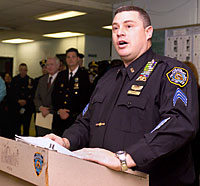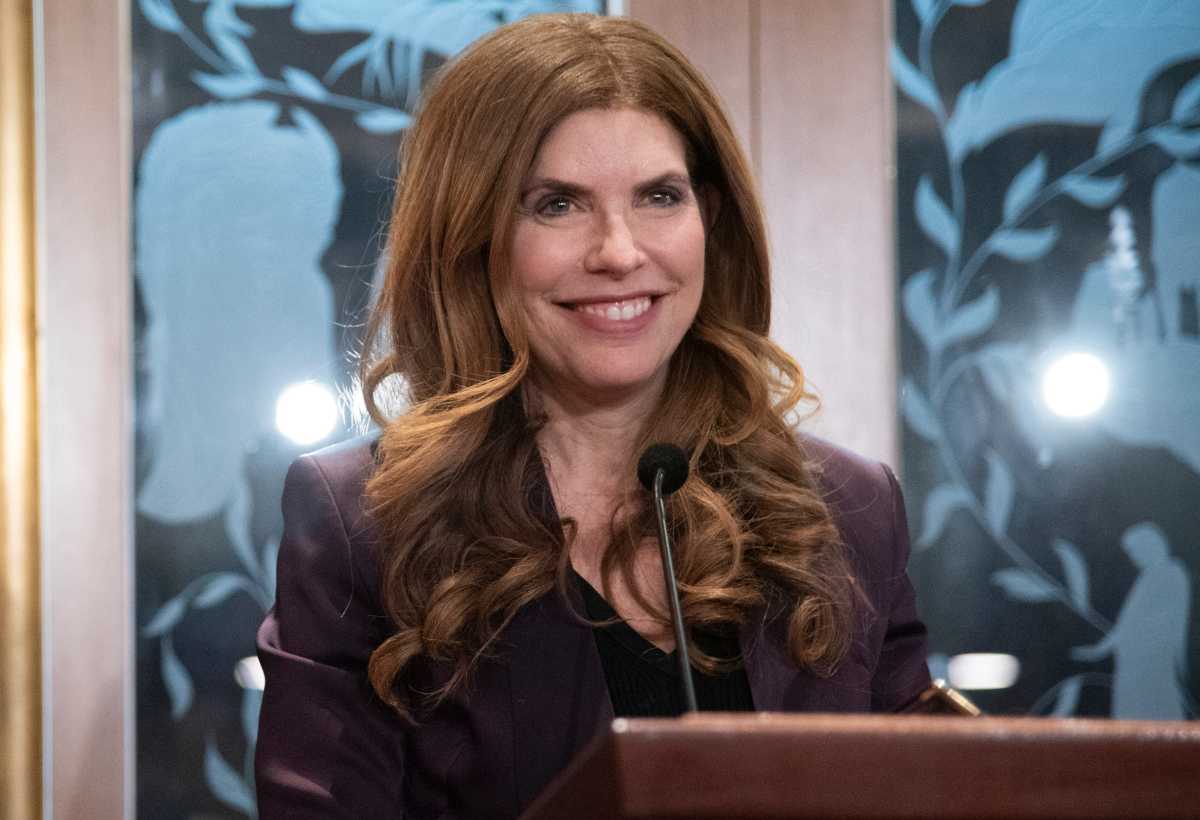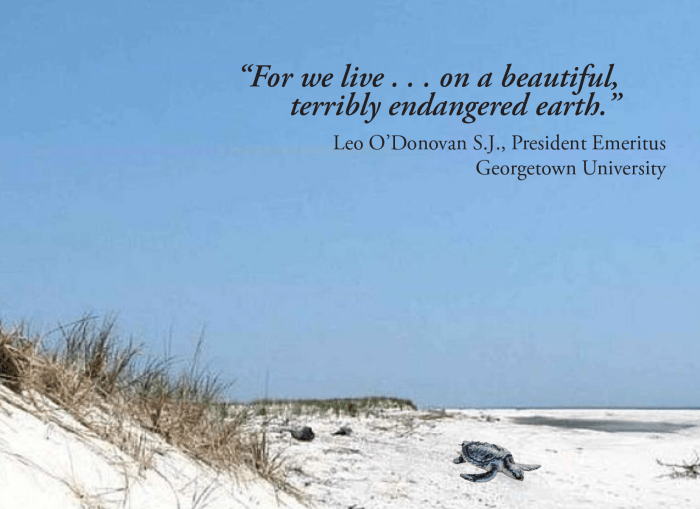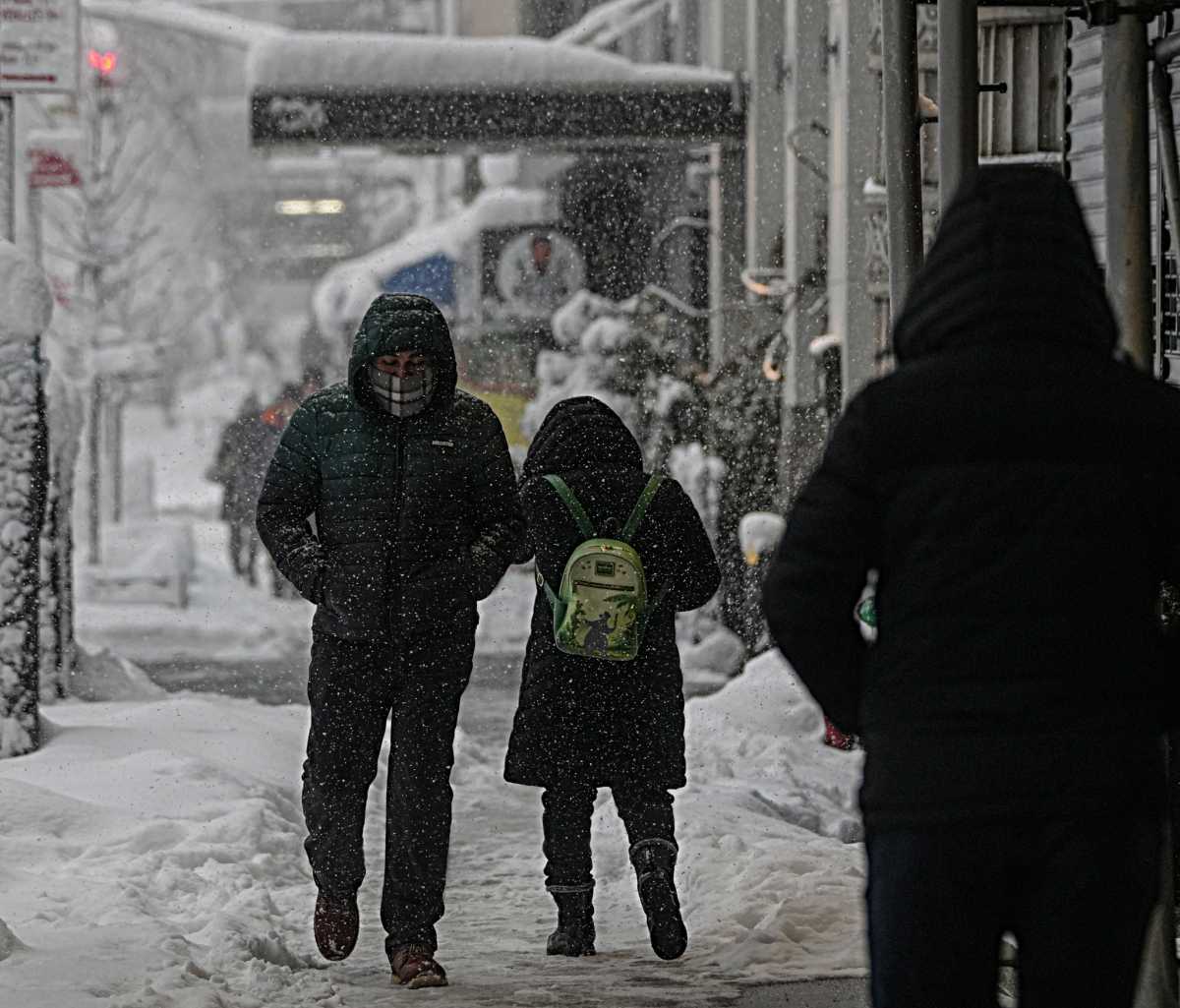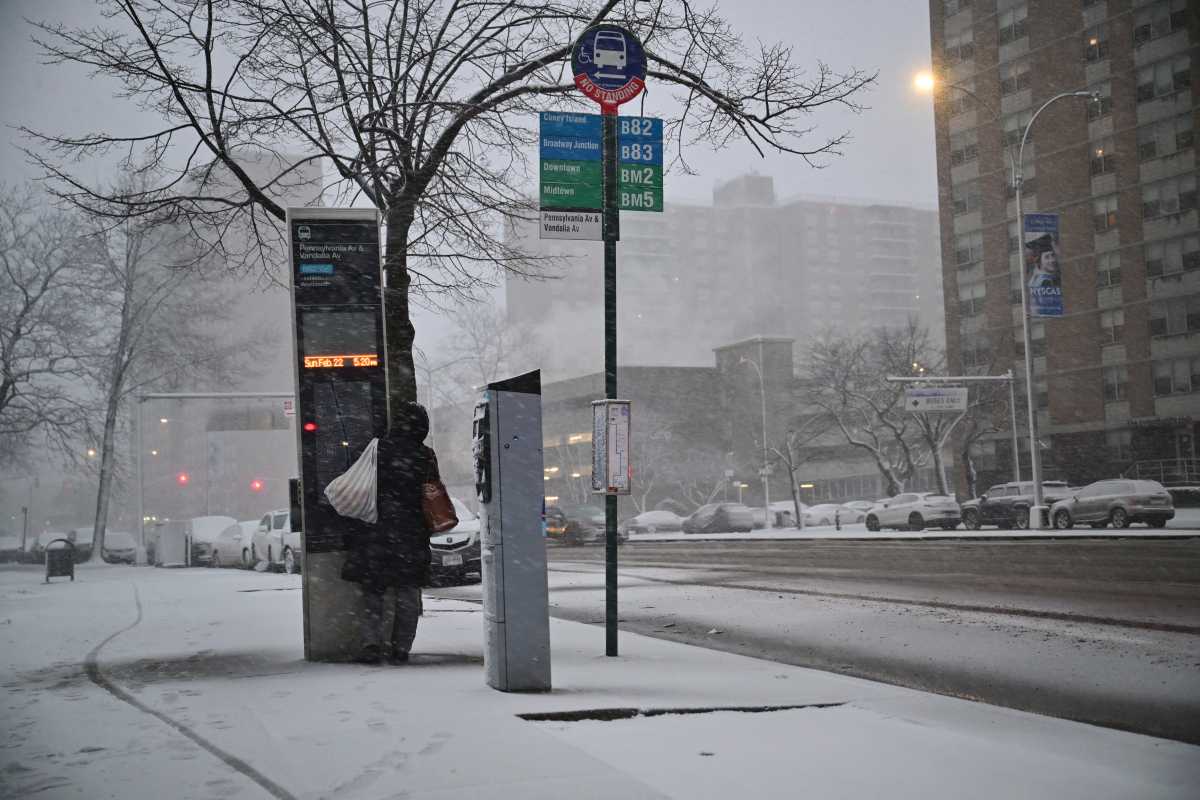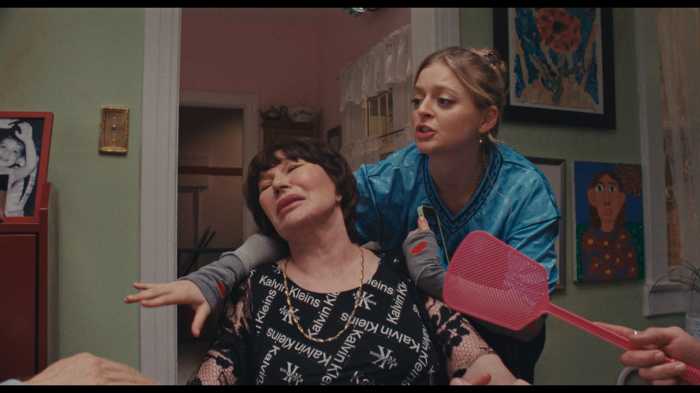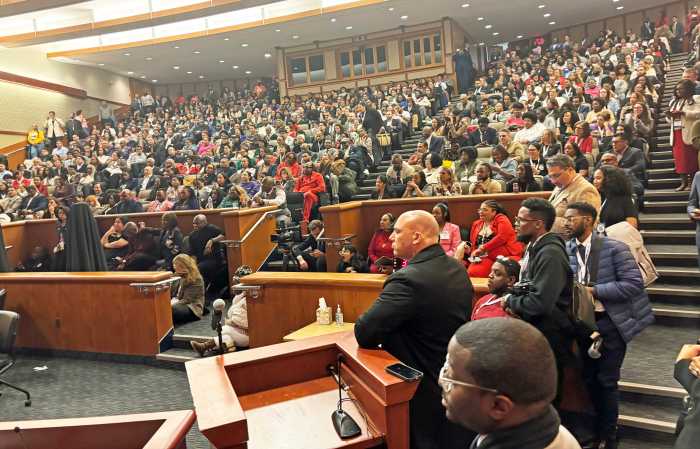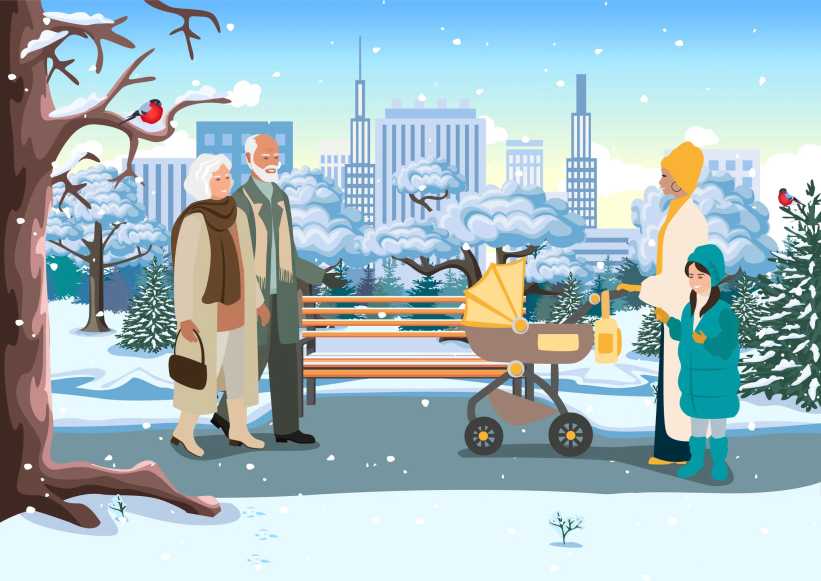Precinct houses
are bugs trapped in amber. The desk sergeant greets outsiders like they’re
ne’er-do-well uncles looking for a handout. In the far corner is
a Shine-o-Mat machine with two worn-down brushes that look as though they
haven’t been replaced since men wore hats.
The air is filled with the pervasive stench of old cigarettes, even though
smoking hasn’t been permitted for years. And the far wall —
the Wall of Shame — is covered with mugshots that leave no doubt
why the cops call these recidivists “skels”; most of the grizzled
mugs belong to men who appear to have already been dead for three weeks
when the photo was taken.
So perhaps it was foolish to think a columnist from the other side of
these particular tracks could breach this blue-walled fortress last week,
despite being given a rare chance to watch Sergeant Anthony Donadio of
Bay Ridge’s 68th Precinct give his last roll call after 22 years
on the force.
The roll call, of course, is that most hoary of Hollywood police cliches,
typically featuring a gruff-but-lovable (think Jack Warden) officer barking
out the day’s marching orders.
But before Donadio appeared, his officers — and superiors —
sang his praises like mob stoolies squealing for a reduced sentence.
“This is a guy who tells you like it is,” said John Iorio, who
has served under Donadio for seven years. “He’s real world.
No sugar-coating.”
Pressed for an example, Iorio couldn’t find the words.
“If you ask him something,” Iorio tried, “he’ll tell
you straight out, what’s what.”
For example?
“He’s just no bulls—.”
For example?
“He always used common-sense,” offered his C.O., William Aubry.
“This was a guy who knew how to talk to people on the street.”
For example?
“I couldn’t have learned from a better teacher,” said Peter
Pasqualone, who just made sergeant after 11 years at Donadio’s holster.
“He was the kind of sergeant who never asked anyone to do anything
he hadn’t done himself.”
For example?
“He was just such a hard-worker.”
For example?
“Coming into this job, you look for a father figure, someone to show
you how it’s done,” said rookie John Papio. “He was that
guy for me.”
For example? No matter how diligently the columnist dug, no answer was
forthcoming.
So, as easy as it was to see that “the men” loved their sarge,
it wasn’t exactly clear why — until it was finally time for
Donadio to read the roll, the four hashmarks on his arm and the flinty
awkwardness of being in the spotlight the only thing distinguishing him
from the others.
He took attendence with little fanfare, then told each pair of partners
about robbery patterns in the vacinity.
Then he mumbled out three paragraphs so reluctantly that it almost appeared
that he knew he’d no longer be a cop the minute he stopped speaking.
Yet the advice was timeless and universal, even to this outsider.
“Do not wish away your career,” he told his mostly young cops.
“Trust me when I tell you the years will fly by. Savor the good times
and learn from the bad.
“Second, take care of your partner; take care of your squad; take
care of each other. Treat the NYPD as your extended family. This will
make for a better job and a better cop.
“Lastly, remember this: Having 22 years on the job, my experience
has been that there are two kinds of cops: NYPD officers and all other
law enforcement officers who wish they were NYPD. Other police departments
use the NYPD bar as a standard of achievement. I am proud to have served
as a New York City police officer and worked with officers of your caliber
and character.”
He was nearly crying by the end, but, fortunately, state Sen. Marty Golden
(R-Bay Ridge) and City Councilman Vincent Gentile (D-Bay Ridge) came over
and give him proclamations, allowing Donadio to steel himself behind the
blue wall of stocism again.
Chatting him up later, it was clear it’s not a wall he often allows
to come tumbling down.
“In 22 years, the only thing I learned is how to dry my hands using
only toilet paper,” he said, keeping a questioner at a distance (another
officer gave the entirely unnecessarily explanation: there are never any
paper towels in a stationhouse bathroom).
But pressed, he at least admitted why he was leaving the best job he ever
had.
“I think the department lost sight of the job,” he said. “Years
ago, it was more of a family. Obviously, we’re not paid enough, but
it’s more than that. We’re pushed and pushed and pushed. Yes,
the city is safer for it, but it makes for a force where everyone can’t
wait to do their 20 and get out. They don’t enjoy the work.”
He laughed a few times when other offers were roasting him around a table
spread with deli sandwiches and mayonaise-based side salads, but this
cop’s cop never really let anyone in, even on the one day when that’s
where everyone wanted to be.
Of course, there was still police work to be done, and Donadio seemed
eager to get back to it — despite knowing all about Hollywood’s
other main cop cliche: that a police officer who is celebrating his last
day on the job in Act I will most likely be dead by Act II.
“Yeah, they’ll probably try to keep me in here all night, doing
paperwork, but I’m going out on the street,” he said.
“It’s my last night. Where else would I be?”


